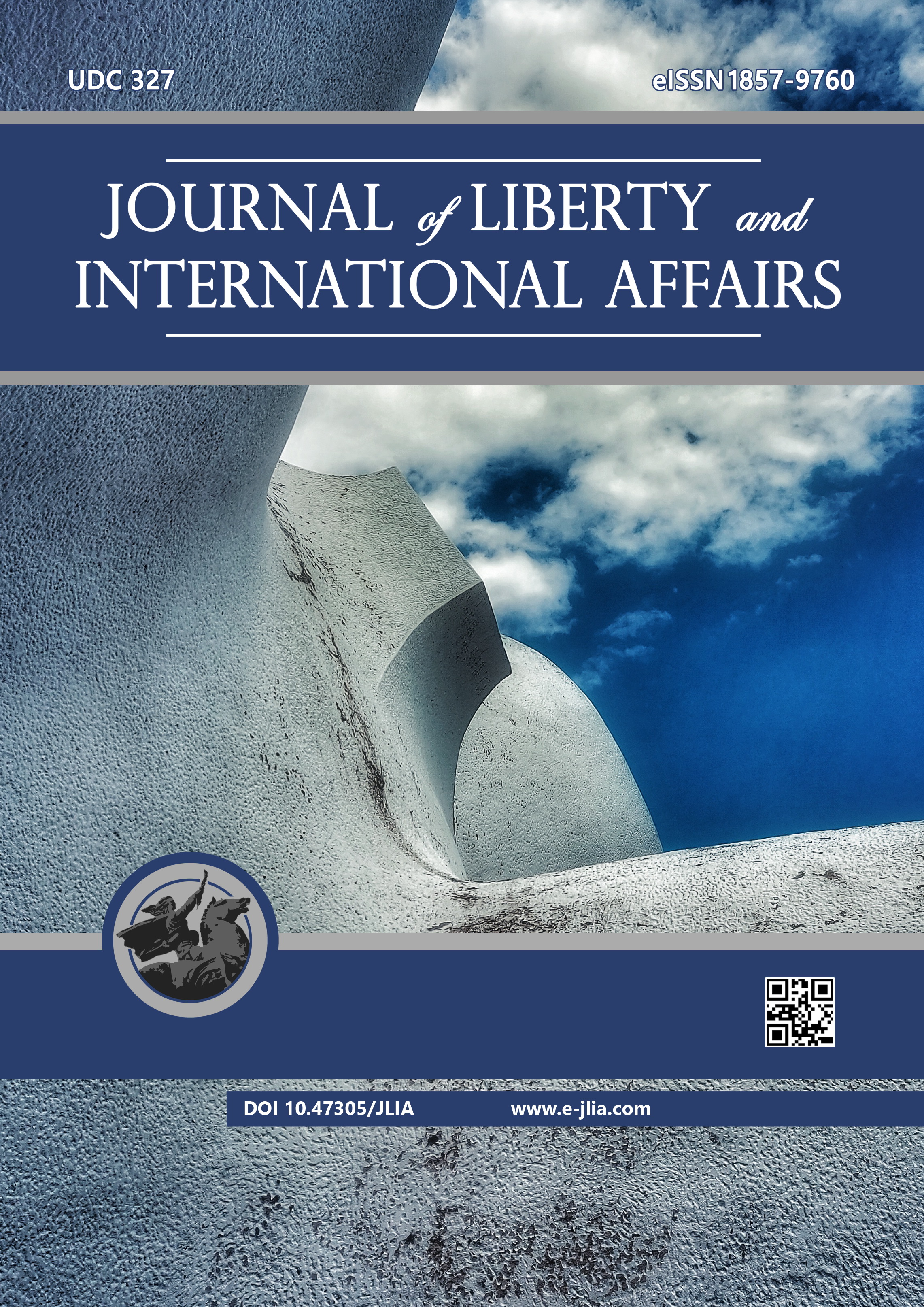RUSSIA’S COMMUNICATION STRATEGIES ABOUT CRIMEA IN SPANISH-LANGUAGE SPUTNIK AND RUSSIA TIMES (2014-2018)
RUSSIA’S COMMUNICATION STRATEGIES ABOUT CRIMEA IN SPANISH-LANGUAGE SPUTNIK AND RUSSIA TIMES (2014-2018)
Author(s): Ludmila Gonzalez Cerulli, Sybil RhodesSubject(s): Politics / Political Sciences, Politics, Social Sciences, Law, Constitution, Jurisprudence, Psychology, Media studies, International Law, Political Theory, Political Sciences, Civil Society, Governance, Public Administration, Public Law, Communication studies, Government/Political systems, International relations/trade, Security and defense, Military policy, Welfare systems, Political behavior, Political psychology, Politics and law, Politics and communication, Politics and religion, Politics and society, History and theory of political science, Methodology and research technology, Comparative politics, Theory of Communication, Social psychology and group interaction, Inter-Ethnic Relations, Geopolitics, Politics of History/Memory, Politics and Identity, Corruption - Transparency - Anti-Corruption
Published by: Institute for Research and European Studies - Bitola
Keywords: Cyberpolitik; Post-Truth; Russia; Crimea; Sharp Power; Sputnik; Russia Times
Summary/Abstract: We analyze Russia’s communication strategies in the period leading up to and following the seizure (2014-2018) of the Crimean Peninsula in the Spanish editions of its digital platforms, Sputnik and Russia Times. Drawing from theories of political communication, we show how Russia used storytelling and framing to build an international image and political brand consistent with, and try to justify, its foreign policy actions. Specifically, Russian messages transmit no room for doubt about the legality of any of its strategies in Crimea. We argue that this communication strategy is consistent with the concept of ‘sharp power’ to describe Russian projection in the world. Cultural and emotional appeals designed to generate positive emotions about Russia, i.e., ‘soft power’, were far less common. In recent years, Russian projection of sharp power appears to have increased in the Spanish-speaking world, particularly in South America. In addition to helping explain Russian foreign policy, our findings contribute to broader debates about political branding and truth in a ‘post-truth’, multipolar world.
Journal: Journal of Liberty and International Affairs
- Issue Year: 8/2022
- Issue No: 3
- Page Range: 257-271
- Page Count: 15
- Language: English

